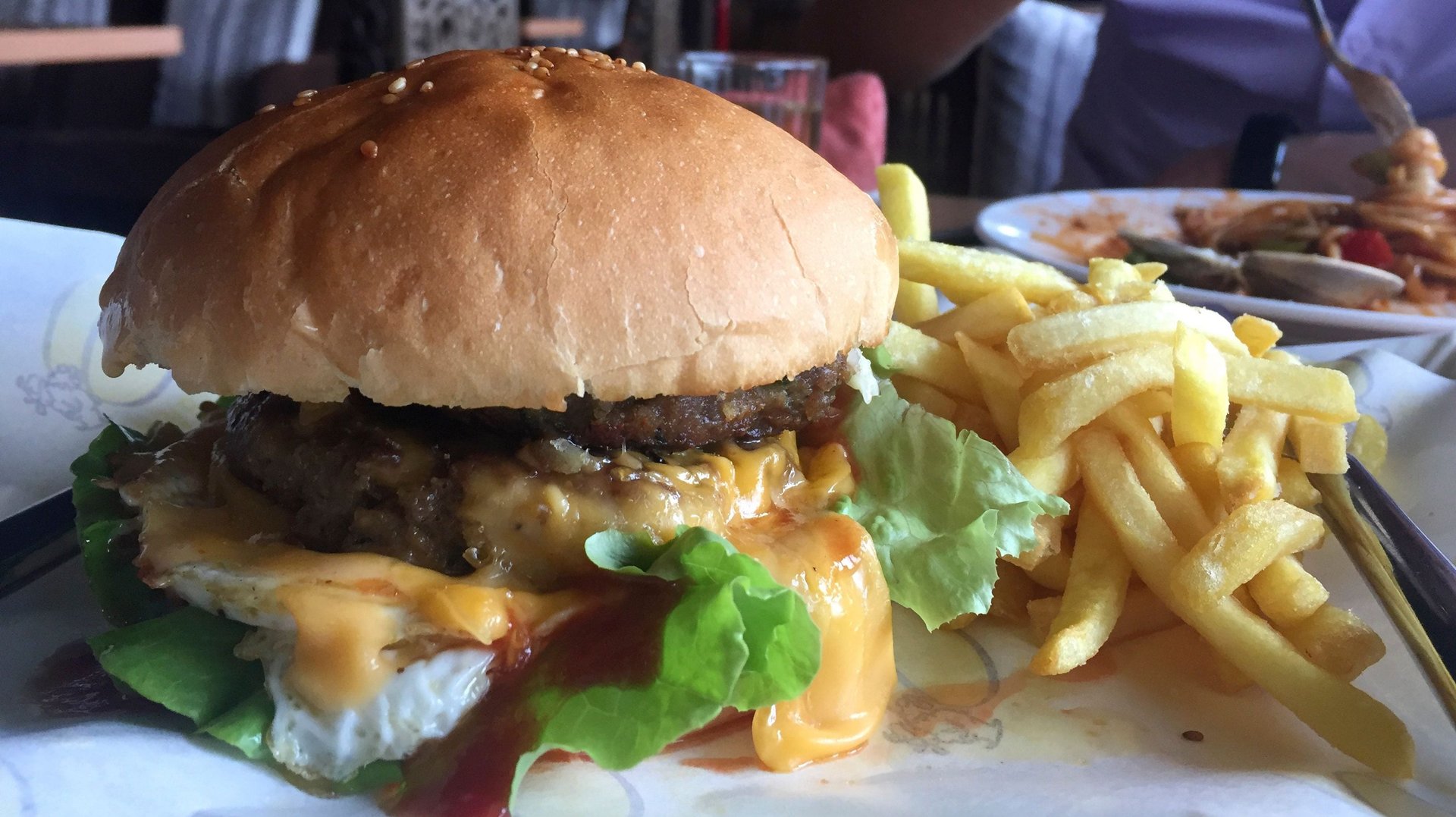Immigrants to the US change from the inside out—literally
Immigrants coming to the US go through several external changes when they arrive in America, like a new home, new job, and a new community. But internally, they’re also undergoing a seismic shift in the composition of their digestive tracts.


Immigrants coming to the US go through several external changes when they arrive in America, like a new home, new job, and a new community. But internally, they’re also undergoing a seismic shift in the composition of their digestive tracts.
A new study published today (Nov. 1) concluded that within nine months, immigrants from southeast Asian communities start to lose their diverse gut microbiomes and gain one similar to Americans’, with far fewer types of bacteria. These changes are more pronounced with each generation living in the US, meaning that someone who first moved to the US could pass down some of these changes to her children. Because the gut microbiome has been linked to several conditions, including obesity, this shift could have health implications for immigrant populations that have yet to be addressed.
“Having low diversity in your microbiome is almost universally a sign of bad health, across almost every disease that has been studied,” Dan Knights, a computational microbiologist at the University of Minnesota and a co-author of the study, told the Atlantic.
Two years ago, Pajau “PJ” Vangay, a graduate student in computational biology working in Knights’ lab, became interested in how immigrating could change one’s gut microbiome. The system of trillions of microbes (largely bacteria) has been found to play such a big role in different aspects of our health, it’s been likened to an entirely new organ (paywall). She began working with local Hmong and Karen—ethnic minorities living in southeast Asia— populations to talk to them about her work, and, eventually, asked them for both stool samples and answers to questionaries about their food for the past 24 hours. Fecal matter contains information about the bacteria in our colons, which has the largest collection of microbes out of anywhere else in the body.
Vangay collected some bacteria from women living in Thailand, moving to the US, and those who had been there for one or two generations. (Women were the focus of this study because they tend to immigrate more than men.) In total, she and her team collected samples from 514 Hmong and Karen women who were living in Thailand, had been in the US for various periods of time, 19 Karen women before and after they moved to the US, and 36 US-born women of European descent as control.
Within nine months of women moving to the US, there was a noticeable shift in their microbiomes: After immigrating, women started to lose their diverse population of Prevotella bacteria, which produces some of the enzymes that break down plant fiber, and started gaining populations of Bacteroides, which is more common in Western microbiomes. This means that in general, their guts were less equipped to break down fibrous veggies. The changes progressed so quickly, women who were second-generation immigrants had microbiomes similar to women born in the US.
The researchers think a big reason for this shift is likely diet, because the food we eat becomes food for our microbes. But there are likely several factors at play, including the new environment, or if they take any new medications which can also change our gut bacteria.
Low diversity within the gut is tied to several kinds of diseases, including obesity. Although there isn’t enough data yet to prove that changing gut microbes leads to excessive weight gain, it may be a factor: already, researchers have seen that US immigrants have a four-fold increase in obesity rates after living in America for 15 years or more.
Future work could be geared to figuring out exactly how much gut microbes matter for obesity, and other chronic health issues that immigrants may face as a result of moving to the US. Plus, Knights told Gizmodo, “it might teach us something about how to keep other group’s microbiomes healthier as well.”